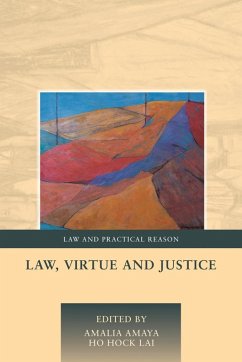This book explores the relevance of virtue theory to law from a variety of perspectives. The concept of virtue is central in both contemporary ethics and epistemology. In contrast, in law, there has not been a comparable trend toward explaining normativity on the model of virtue theory. In the last few years, however, there has been an increasing interest in virtue theory among legal scholars. 'Virtue jurisprudence' has emerged as a serious candidate for a theory of law and adjudication. Advocates of virtue jurisprudence put primary emphasis on aretaic concepts rather than on duties or consequences. Aretaic concepts are, on this view, crucial for explaining law and adjudication. This book is a collection of essays examining the role of virtue in general jurisprudence as well as in specific areas of the law. Part I puts together a number of papers discussing various philosophical aspects of an approach to law and adjudication based on the virtues. Part II discusses the relationship between law, virtue and character development, with some of the essays selected analysing this relationship by combining both eastern perspectives on virtue and character with western approaches. Parts III and IV examine problems of substantive areas of law, more specifically, criminal law and evidence law, from within a virtue-based framework. Last, Part V discusses the relevance of empathy to our understanding of justice and legal morality.









